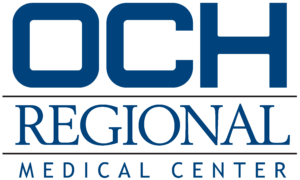The new normal in nursing:
There have been so many unknowns and obstacles. Guidelines from the CDC and Department of Health changed almost daily at the beginning of the pandemic, so we had to communicate and educate our staff about those new guidelines. We are accustomed to taking care of viruses and diseases that require isolation and require us to use PPE [personal protection equipment], although with this virus, it has a much higher risk of spreading. Every time they enter that room, they have to know in their heart of hearts, that there is a risk. Sure, we have the correct PPE for them, but at the end of the day, there is always a risk when you’re removing that gown or removing those gloves that you could accidentally contaminate yourself. Some of our staff have tested positive, but we have been very fortunate and very blessed to not have any of our staff become gravely ill with the virus. In the beginning, we dedicated a certain number of staff going into patients’ rooms. That wasn’t sustainable because it put an extra workload on all nurses, so we’ve made adjustments. When I say we have a team of heroes here, we really do, and they spend hours in those rooms both in our acute care floor and our intensive care. They put on their protective garments and they start in that room and might stay in the room for three hours depending on the needs of the patient. Our nurses in other departments have really stepped up to go where they are needed to take care of our patients. It’s really been something to see how brave all of our healthcare providers have been, and that goes to our housekeeping team, lab personnel, respiratory therapy, x-ray, and physicians. I’m just so proud to be part of this team.
OCH’s capacity to take care of patients:
The number of patients has been very fluid since the beginning of the pandemic. We have acute care beds on our medical/surgical floor, but more recently, patients needing that critical care, we have been at capacity in our ICU, like so many other hospitals. I am always in the need of good staff. I think all of the hospitals struggle a little bit to have enough nurses, and that was probably the case before the pandemic. I’m recruiting heavily. We approach our staffing depending on the needs of our patients. We look at it daily, and work together as a team to take care of our patients.
Treatment for patients:
All of our physicians are very well connected and talk frequently with physicians in other networks about what’s working for their patients and what they can learn from them. We are doing everything that everyone else is doing. We have all the same drugs and the same services here that others in our area have, and our providers have been able to keep us at the top of the line of providing quality care to all of our patients.
Patients admitted for COVID:
Most of our patients admitted for COVID have been 65 and over. We’ve had several patients from our long term care facilities, but the virus is not age specific. It’s also dependent on the patient’s comorbidities and how well they’ve managed their chronic diseases. Just because you have diabetes doesn’t mean you will end up in critical care, but if you’ve not been managing that and have had a lot of inflammation from that, COVID may affect you much worse than someone else. It really depends on the patient and the big picture.
Personal protection equipment:
We have a safety huddle call every morning at 8:30, and we discuss where we are with our equipment and PPE, so if we see we’re getting low, we reach out to federal and state agencies for help. We’re very thankful that we’ve not run out of anything, and it’s not caused a delay in patient care to this day. The community has also been very supportive in making face shields and masks, and we very much appreciate their generosity!
Message to the public:
Wash your hands. Wear a mask. And do the best you can to social distance. I would also say—take your vitamins! Now is especially the time to take those multivitamins. But the three big things that can make a difference are washing your hands, just pretend like we’re in the middle of flu season, wearing a mask, and social distancing. I know it’s hard. We’ve been in this for several months. We thought it was going to get better, and it hasn’t. I think as soon as we can get a vaccine that will work, we’ll all be in better shape.

Michelle Welander joined the OCH administrative staff in July 2019 as the Chief Nursing Officer. Prior to her role as OCH CNO, Welander spent more than 20 years in various roles within the Children’s Hospital from staff nurse up to the CNO at the University of Mississippi Medical Center.
